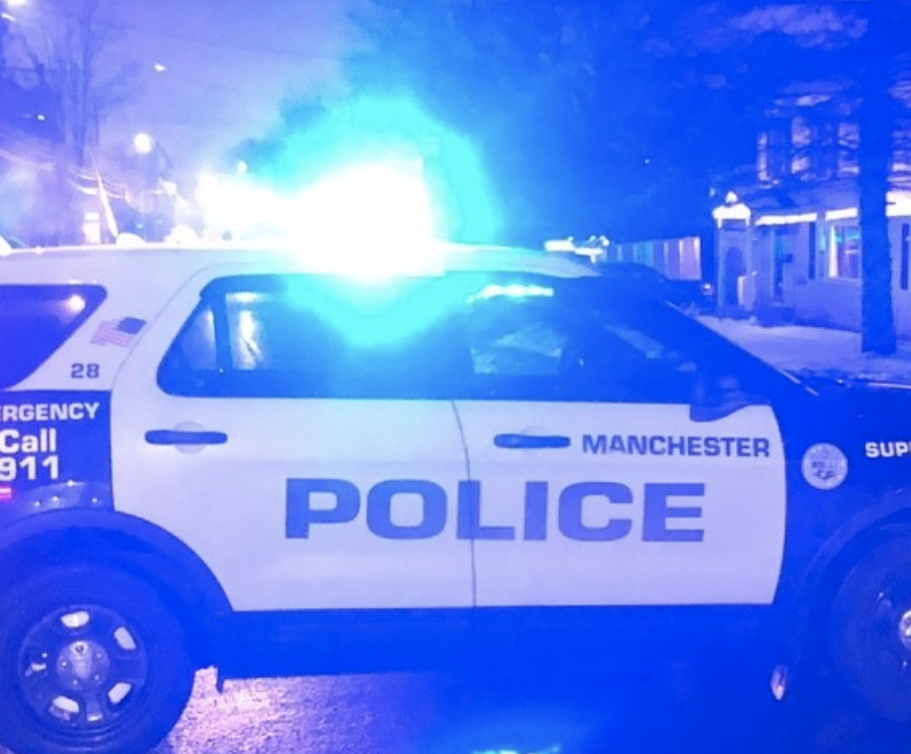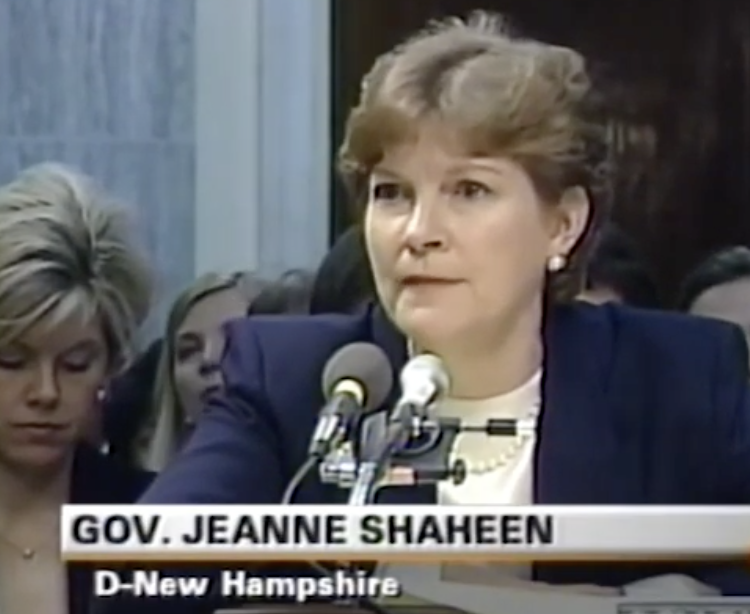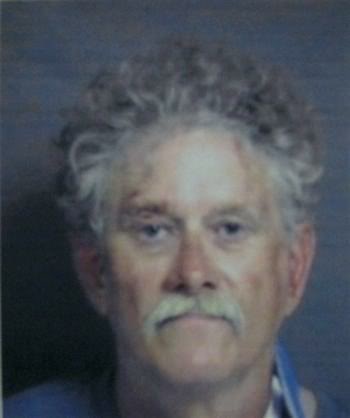COVID, Conspiracies, and Cannabis: RFK Jr. Does PorcFest
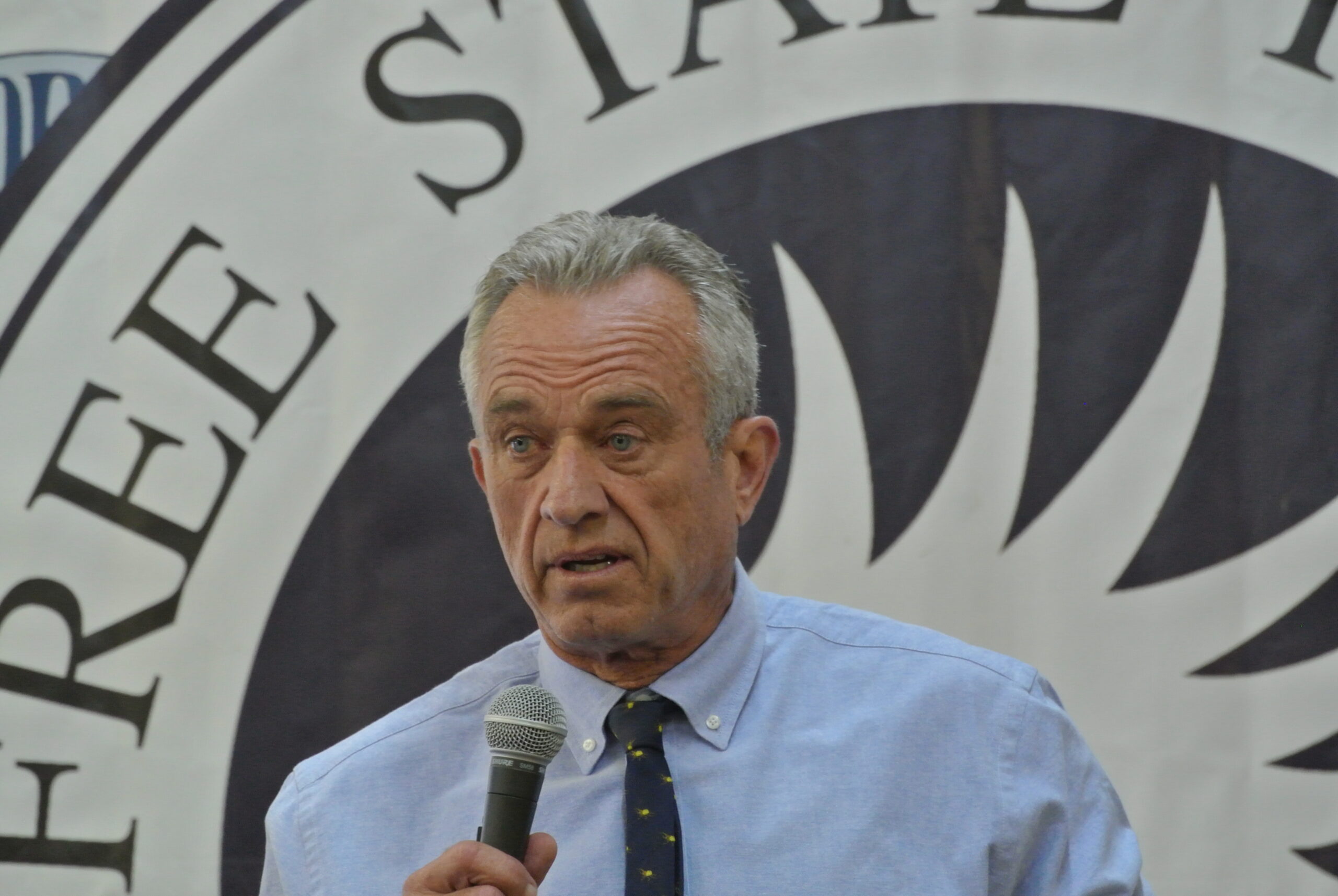
It was a hot Thursday morning at the PorcFest Pavilion in Lancaster, and as hundreds waited in the sun to see Robert F. Kennedy Jr., the air was thick with excitement.
And pot.
And the scents that come with the presence of a large number of dogs.
It also didn’t help that the central bathroom with showers, located near the Norse pagan spiritual village, was out of order. The adjacent port-a-potties were also shut. It was hoped that would all be fixed before Thursday night’s scheduled free couples shower event.
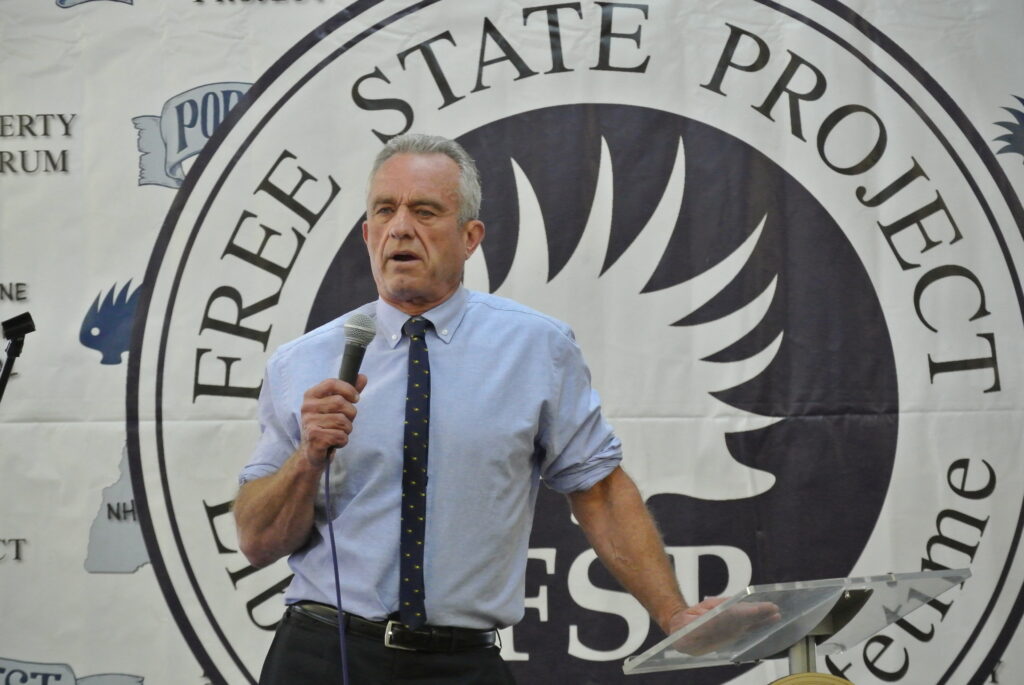
This was the environment RFK Jr. stepped into when he showed up for Porcfest, the Free State Project’s annual gathering in the White Mountains. Once he took the stage, the air was full of something else familiar at FSP gatherings: Anti-government conspiracy theories.
Kennedy’s appearance at this libertarian event upset Democrats like New Hampshire state party chairman Ray Buckley, who sent the Democratic presidential candidate a plea not to participate.
“Free Staters are nearly universally Republican primary voters; they are highly unlikely to vote in the Democratic Primary,” Buckley wrote. “Free Staters view with hostility our candidates, elected officials, values, and our party as a whole.”
Given the hostility Kennedy’s candidacy has received from his fellow Democrats — including candidates and elected officials — that latter point may have been moot.
And if the state Democratic Party wasn’t thrilled by RFK Jr. showing up at PorcFest, not every Free Stater was happy about it, either. Kennedy’s security requirements involved a ban on firearms in the Pavilion, no small feat at an event that often appears to be a walking gun show.
Guns are everywhere at PorcFest. People brought their AR-15s to the dog meet-up (though there was a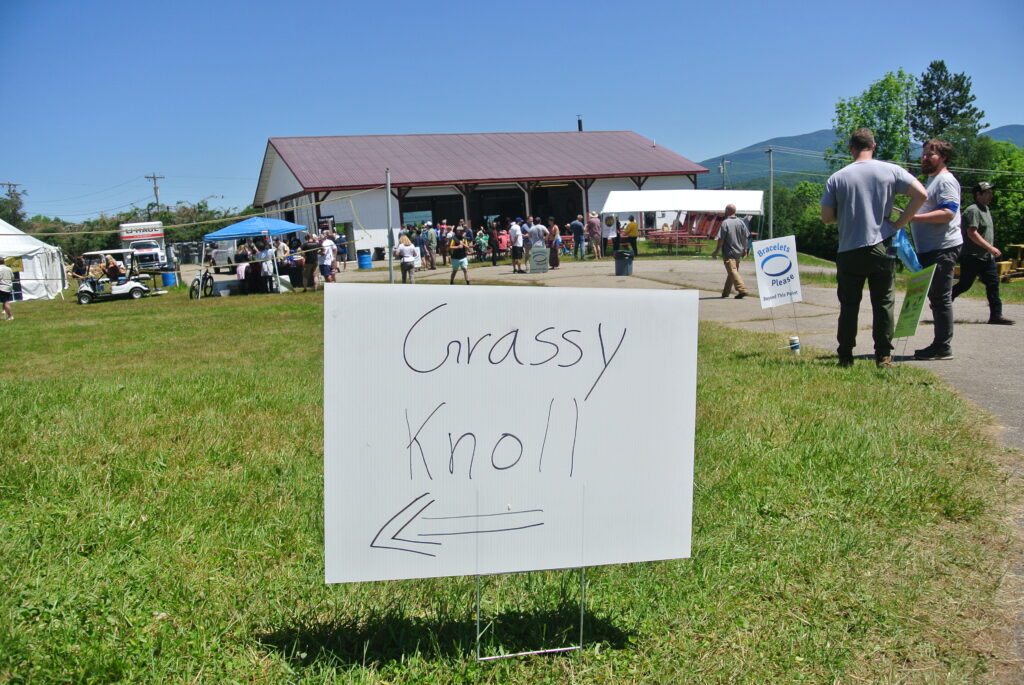 conspicuous lack of doggie clean-up bags). They wore rifles on slings when grilling burgers or buying tacos. And so, while Kennedy spoke, there was a small pro-gun protest about 100 yards away at the self-declared “grassy knoll.”
conspicuous lack of doggie clean-up bags). They wore rifles on slings when grilling burgers or buying tacos. And so, while Kennedy spoke, there was a small pro-gun protest about 100 yards away at the self-declared “grassy knoll.”
It was a joke that could be considered offensive to a Kennedy family member, except that RFK Jr. believes a government-backed conspiracy murdered his uncle.
And while Kennedy and the FSP crowd may have disagreed on guns, they found plenty of common ground on the overall premise that government is a major part of America’s problems.
In his speech, Kennedy rolled through a tale of CIA operations to create bioweapons, totalitarian attempts to subvert the Constitution, Microsoft founder Bill Gates working behind the scenes with Dr. Anthony Fauci to create a fake vaccine — with a couple of side trips through the dangers of the Patriot Act.
And, because he is Kennedy, there was a long discourse on environmental law administrative proceedings.
Kennedy’s appearance was largely a hit with the crowd. Suffering from spasmodic dysphonia, a rare voice disorder, he delivered his stump speech like a raspy internal monologue that appeared to start in the middle of a conversation he was already having. He soon got to the FSP applause lines: Vaccine conspiracies, promises to free Julian Assange and Edward Snowden, and support for cryptocurrency.

The crowd quieted quickly, however, when Kennedy was asked about his support for the Second Amendment.
“I support a less than expansive view of the Second Amendment,” Kennedy confessed. “But, I’m not going to take away anyone’s guns as president of the United States.”
Jim Babb, one of the libertarians attending, said Kennedy’s views on gun rights are somewhat disturbing.
“I thought that was very weak. He talks about wanting to respect the Constitution, but I’m more interested in the fundamental right of self-defense,” Babb said. “He doesn’t really seem committed to human rights.”
Free Stater Tom Schnaidt first became interested in Kennedy at the start of the COVID pandemic and said he is still interested in his fight against the pharmaceutical industry. Schnaidt applauded Kennedy for telling the truth about his gun views, even if it did not appeal to the crowd.
“He’s running for president of the United States. New Hampshire is one of 50 states and one of just 13 that allows open carry,” Schnaidt said. “This audience would have sniffed him out if he got up there and made promises that were undeliverable.”
Tim Storrs is less concerned about Kennedy’s position on guns as he is that Kennedy did not address issues like the truth of the 9/11 attacks, the real origins of the Patriot Act, and how viruses are not real.
“The idea that viruses don’t exist whatsoever is not something that he admits very readily, and I don’t expect him to necessarily, and he’s already talked about this as something that divides the medical freedom community,” Storrs said.
Kennedy ended his talk by hailing the courage of New Hampshire Revolutionary War hero Gen. John Stark, who gave the Granite State its iconic “Live Free or Die” motto.
His wife, Molly Stark, viewed by some as equally courageous, might also have been worth a mention.
Molly Stark nursed her husband’s troops suffering from a smallpox outbreak during the war, turning the Stark home into a hospital. She petitioned New Hampshire for permission to inoculate her family from the dreaded disease but was denied.
Inoculation was considered too experimental and dangerous at the time.

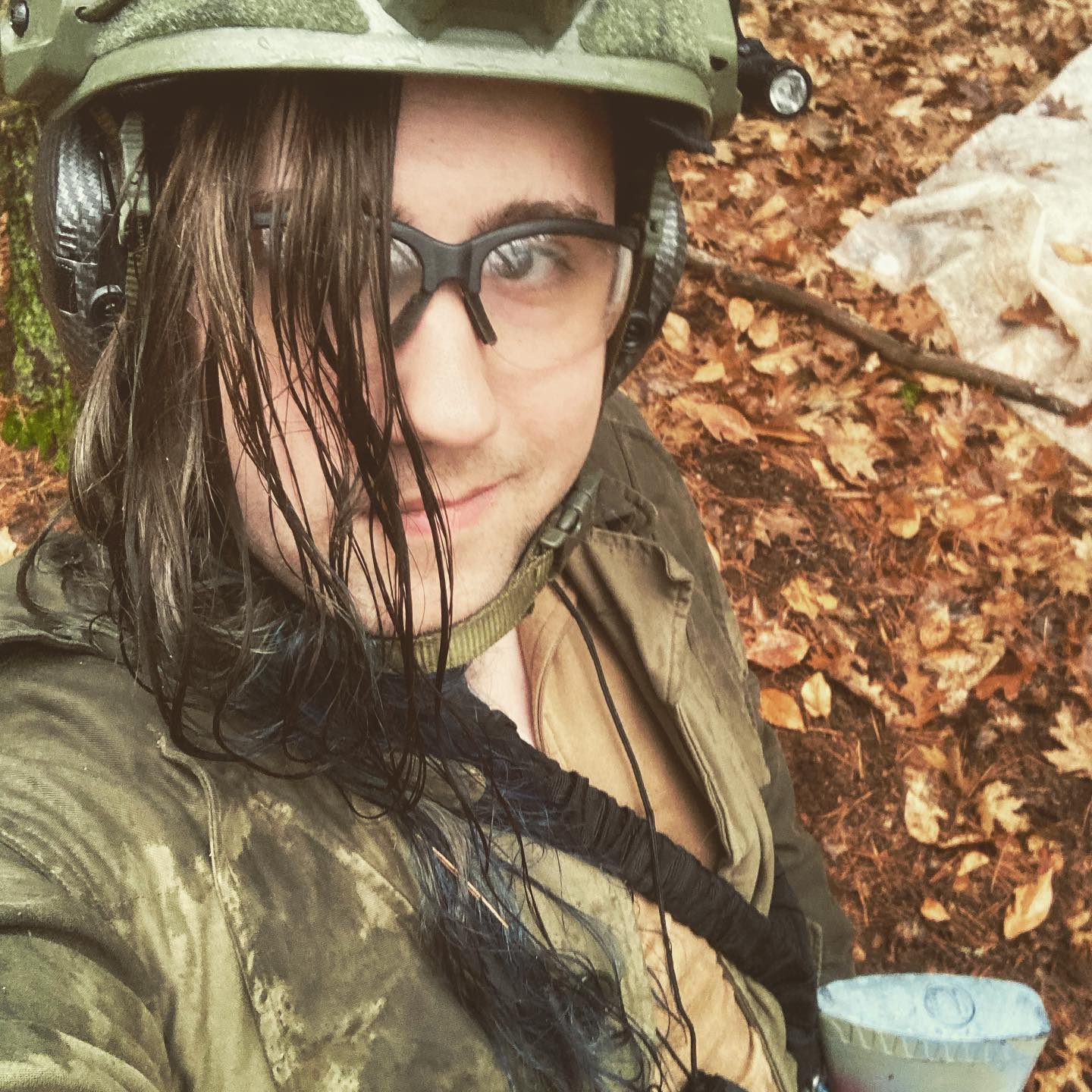
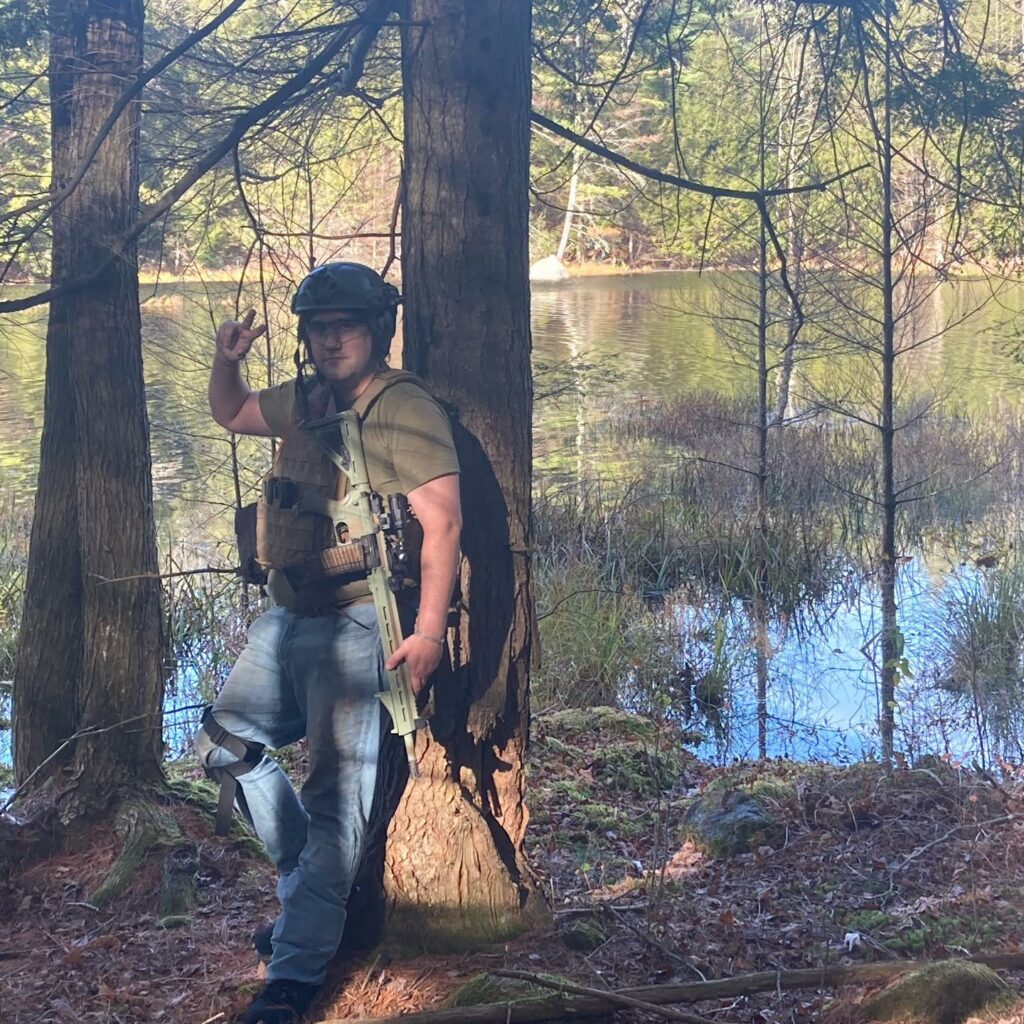 The training usually occurs at a friendly gun range or a site in the woods.
The training usually occurs at a friendly gun range or a site in the woods.
